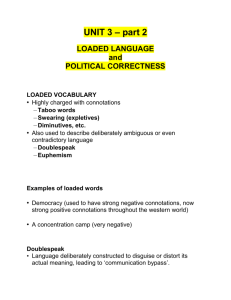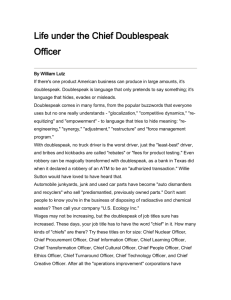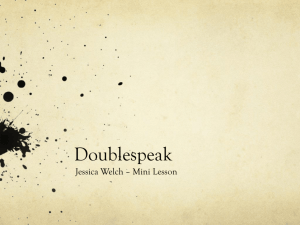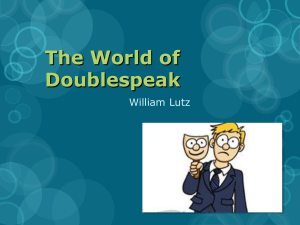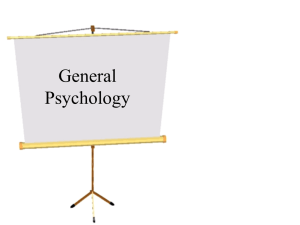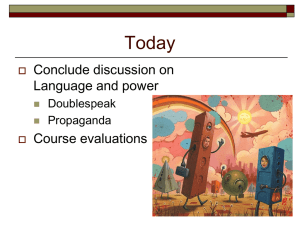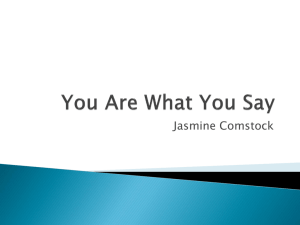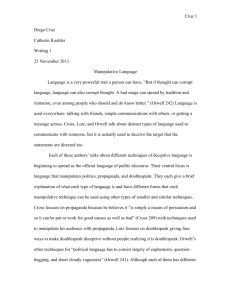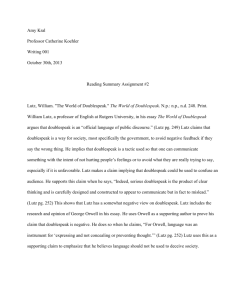Doublespeak Questions ANSWER KEY
advertisement
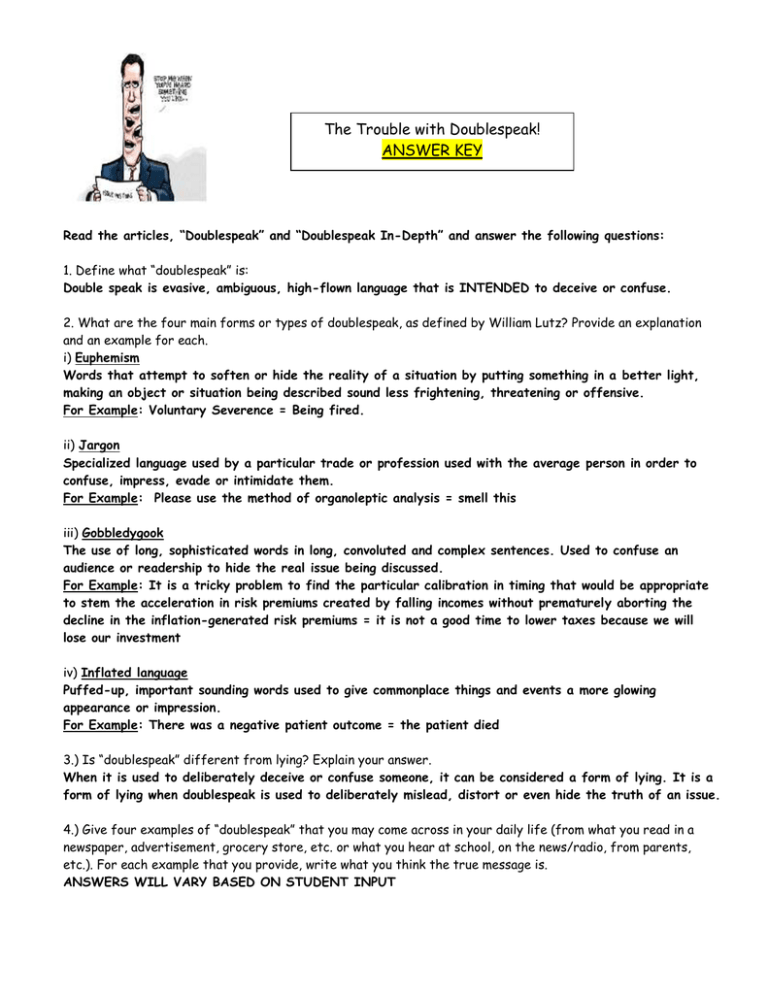
The Trouble with Doublespeak! ANSWER KEY Read the articles, “Doublespeak” and “Doublespeak In-Depth” and answer the following questions: 1. Define what “doublespeak” is: Double speak is evasive, ambiguous, high-flown language that is INTENDED to deceive or confuse. 2. What are the four main forms or types of doublespeak, as defined by William Lutz? Provide an explanation and an example for each. i) Euphemism Words that attempt to soften or hide the reality of a situation by putting something in a better light, making an object or situation being described sound less frightening, threatening or offensive. For Example: Voluntary Severence = Being fired. ii) Jargon Specialized language used by a particular trade or profession used with the average person in order to confuse, impress, evade or intimidate them. For Example: Please use the method of organoleptic analysis = smell this iii) Gobbledygook The use of long, sophisticated words in long, convoluted and complex sentences. Used to confuse an audience or readership to hide the real issue being discussed. For Example: It is a tricky problem to find the particular calibration in timing that would be appropriate to stem the acceleration in risk premiums created by falling incomes without prematurely aborting the decline in the inflation-generated risk premiums = it is not a good time to lower taxes because we will lose our investment iv) Inflated language Puffed-up, important sounding words used to give commonplace things and events a more glowing appearance or impression. For Example: There was a negative patient outcome = the patient died 3.) Is “doublespeak” different from lying? Explain your answer. When it is used to deliberately deceive or confuse someone, it can be considered a form of lying. It is a form of lying when doublespeak is used to deliberately mislead, distort or even hide the truth of an issue. 4.) Give four examples of “doublespeak” that you may come across in your daily life (from what you read in a newspaper, advertisement, grocery store, etc. or what you hear at school, on the news/radio, from parents, etc.). For each example that you provide, write what you think the true message is. ANSWERS WILL VARY BASED ON STUDENT INPUT 5.) Why is it so important to recognize “doublespeak” when we read or hear it? (What are the impacts of doublespeak on our society?) The use of doublespeak in our society can corrupt thoughts, destroy communication and erode trust between the parties involved, such as between politicians and the public or between corporations and the public. 6.) To learn more about “doublespeak” read, “Doublespeak In-Depth”. Note down an example doublespeak word(s) that you have heard or even used yourself and their actual meaning and describe what you have learned from this lesson, in reference to your example. One well organized paragraph will be sufficient. Various responses dependent on student input. Examples could include: 1) 2) 3) 4) 5) Abuse = torture Biosolids = raw (untreated) sewage Crusade = war Incursion = attack Relocation = forced migration (forcing people to move off ancestral lands, etc.)
